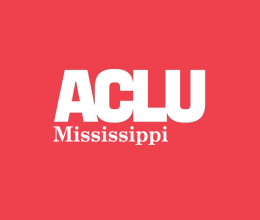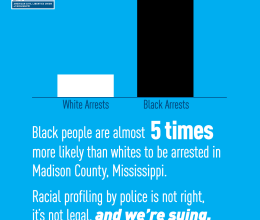
The ACLU of Mississippi was incorporated in 1969 but our origin story began a few years earlier.
The national ACLU office was active in the lead up to 1964’s Freedom Summer and supported civil rights attorneys working in the state. Other legal advocacy organizations, including the Lawyers’ Committee and the NAACP Legal Defense and Educational Fund, opened offices on Jackson’s Farish Street.
These organizations and civil rights attorneys successfully brought cases in not only Mississippi, but Louisiana, Alabama and other parts of the South. They successfully worked on redistricting cases, implementing The Voting Rights Act, defending Black citizens from police brutality, and protecting the first amendment rights of civil rights activists.
ACLU was one of the national organizations that provided financial and legal support to a group of lawyers that came to be known as the “Farish Street Crow.”
As the civil rights movement moved to a different phase, Black and White advocates that worked to advance civil rights in Mississippi wanted to build a statewide organization that would address the emerging social justice challenges, while providing a space for advocates of all races to work in solidarity.
In 1969, a group of these advocates met at Farish Street restaurant and went about incorporating a Mississippi affiliate of the ACLU. After its founding, the ACLU of Mississippi prioritized racial justice, women’s rights and protecting the free speech of war protestors.
But it is important to acknowledge that the organization suffered from a profound racial split in 1977.
That year, the Ku Klux Klan attempted to hold a rally on public grounds in Harrison County. Local officials denied the request and the Klan turned to the ACLU of Mississippi for legal representation.
According to notes from Alison Steiner, a former board member, there was a heated debate within the ACLU Mississippi board on whether to take the case. All of the affiliate’s Black board members voted against it. However, enough of the white members voted yes and ACLU of Mississippi took the Klan's case. As a result, all of the Black members resigned from the board. Though the board later reversed their decision when the Klan sought to move their case from state to federal court, the damage was done.
I didn’t know this when I asked Constance Slaughter-Harvey to permit us to brand a new attorney position with her name, but Judge Slaughter-Harvey was one of the board members that left the ACLU of Mississippi. She shared that with us and explained how deeply the organization lost the trust of Black Mississippians.
Learning that shared history is even more confirmation that we need this partnership between the ACLU of Mississippi and Judge Slaughter-Harvey.
This is an opportunity to state the record of our work in Mississippi, while also demonstrating our office’s commitment to fighting for racial justice here at home.
Our team has taken a very intentional approach to advancing racial justice and protecting voting rights.
Particularly, we have worked to increase our legal capacity to confront issues of racial discrimination and voting rights. We are currently leading voting rights litigation to ensure Black voting power is not diminished by gerrymandered legislative and Supreme Court Districts. We are representing residents from the historical Black Gulfport community of Turkey Creek as they appeal a state decision to allow the building of a military installation in their neighborhood. We also launched the Policing Accountability Project, an initiative that has resulted in two federal lawsuits against Lexington police and city officials.
We hope to make this a sustainable legal effort. We understand that we are not going to win, relying on the Courts alone. Our goal is to organize, especially the Black professional community, around these serious social justice issues.
That’s why the ACLU of Mississippi has launched the Liberty Circle, a new racial justice donor fund. This is our effort to build and organize support of our racial justice legal advocacy. All contributions to the fund will support our racial justice litigation, including the employment of the Constance Slaughter-Harvey Staff Attorney position.
We are honored to have Judge Slaughter-Harvey’s support. Because of our shared past, we are grateful that she trusts our organization.
We still have work to do to assure Black Mississippians that racial justice is an ACLU priority. The only way to really accomplish that is to do the work and show up.




